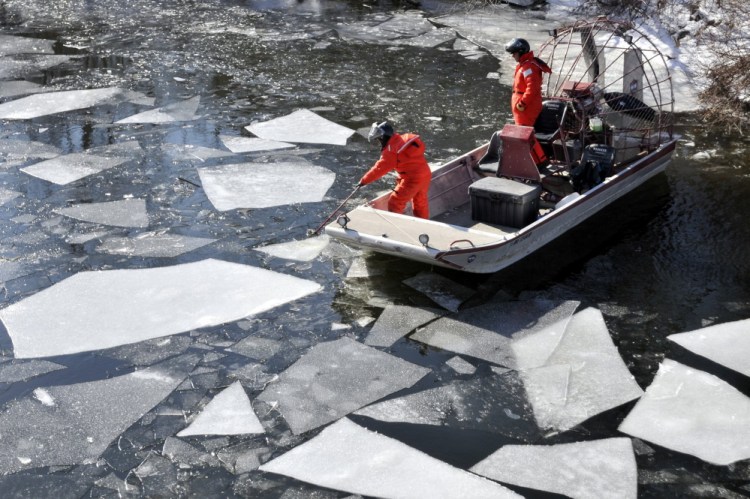The blood found throughout the home where Ayla Reynolds was last seen nearly three years ago is all her mother needs to demand charges – any charges – be brought against the child’s father and two other adults who were with the toddler the night she disappeared, setting off the largest investigation in Maine’s history.
Though investigators believe Ayla is dead and the three adults know more about what happened than they’re telling, no charges have ever been filed.
Now the clock is running out on some of the lesser charges the girl’s mother believes could have already been brought. The statute of limitations on misdemeanors such as child endangerment expires in a matter of weeks, on the third anniversary of Ayla’s disappearance.
“All of them should be put in jail,” said Ayla’s mother, Trista Reynolds.
But she said she isn’t in regular contact with police and has little confidence that charges are imminent. “I don’t see that happening anytime soon,” Reynolds said.
Ayla was 20 months old when she was reported missing by her father, Justin DiPietro, on Dec. 17, 2011. The toddler had been living with DiPietro and his girlfriend, sister and mother in Waterville.
Ayla’s disappearance set off a massive search with FBI, police, wardens and volunteers combing the woods and searching streams.
Investigators ultimately announced Ayla was the victim of foul play but said there is no evidence she was abducted.
Steve McCausland, spokesman for the Maine Department of Public Safety, said the investigation remains “active and ongoing.” DiPietro, who has denied knowing what happened to his daughter, couldn’t be reached for comment.
Maine has no statute of limitations for homicide and there’s a six-year limit for other felonies. But the limit is only three years on lesser charges – misdemeanors such as simple assault or endangering the welfare of a minor, said Jim Burke, a professor at the University of Maine School of Law.
Burke said he sympathizes with the mother but that prosecutors likely don’t want to put their homicide investigation at risk for the sake of pursuing misdemeanors.
Bringing lesser charges would expose evidence central to the homicide investigation and could allow the defense to try to prevent harsher charges by claiming double jeopardy, said Assistant Attorney General Leane Zainea. She said prosecutors are keeping “an eye toward the more serious offenses.”
Kennebec County District Attorney Maeghan Maloney, who has reviewed the available evidence but is not involved in prosecuting the case, said prosecutors from the Attorney General’s Office are best suited to direct the investigation and to decide whether there’s enough evidence to win at trial.
“They’re absolutely devastated by this case that has consumed them. They’re trying to do everything they can. I have 100 percent confidence in them,” she said.
Ayla was placed in her father’s care after Trista Reynolds entered a substance abuse rehabilitation program, and the Reynolds family has questioned the care he provided.
As months turned into years, Reynolds has sought to put pressure on DiPietro and law enforcement agencies while trying to keep her daughter in the public eye. She and others even chased DiPietro after an unrelated court appearance last year, with the crowd shouting “Murderer!” and “Where’s Ayla!”
Maloney said she doesn’t blame Reynolds for pressing for justice and for being frustrated. “What she’s going through is the worst thing a parent could go through,” she said.
But Burke said law enforcement investigators have to be patient because criminal investigations don’t play out as quickly as they do during a TV show or movie. Sometimes they take years, he said.
“The state is not going to go away,” he said. “Sometimes it takes 20 years for someone to slip up. So they sit and wait. They never give up.”
Copy the Story LinkSend questions/comments to the editors.






Success. Please wait for the page to reload. If the page does not reload within 5 seconds, please refresh the page.
Enter your email and password to access comments.
Hi, to comment on stories you must . This profile is in addition to your subscription and website login.
Already have a commenting profile? .
Invalid username/password.
Please check your email to confirm and complete your registration.
Only subscribers are eligible to post comments. Please subscribe or login first for digital access. Here’s why.
Use the form below to reset your password. When you've submitted your account email, we will send an email with a reset code.